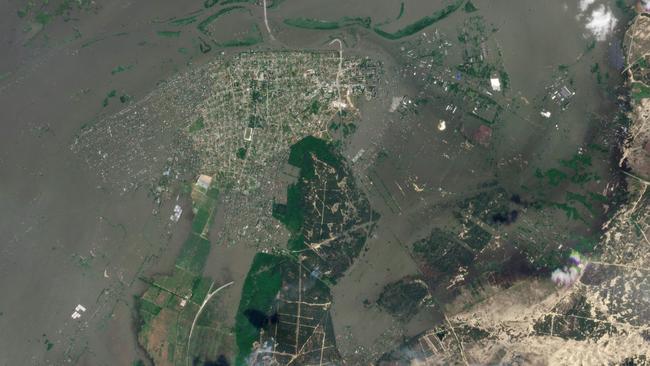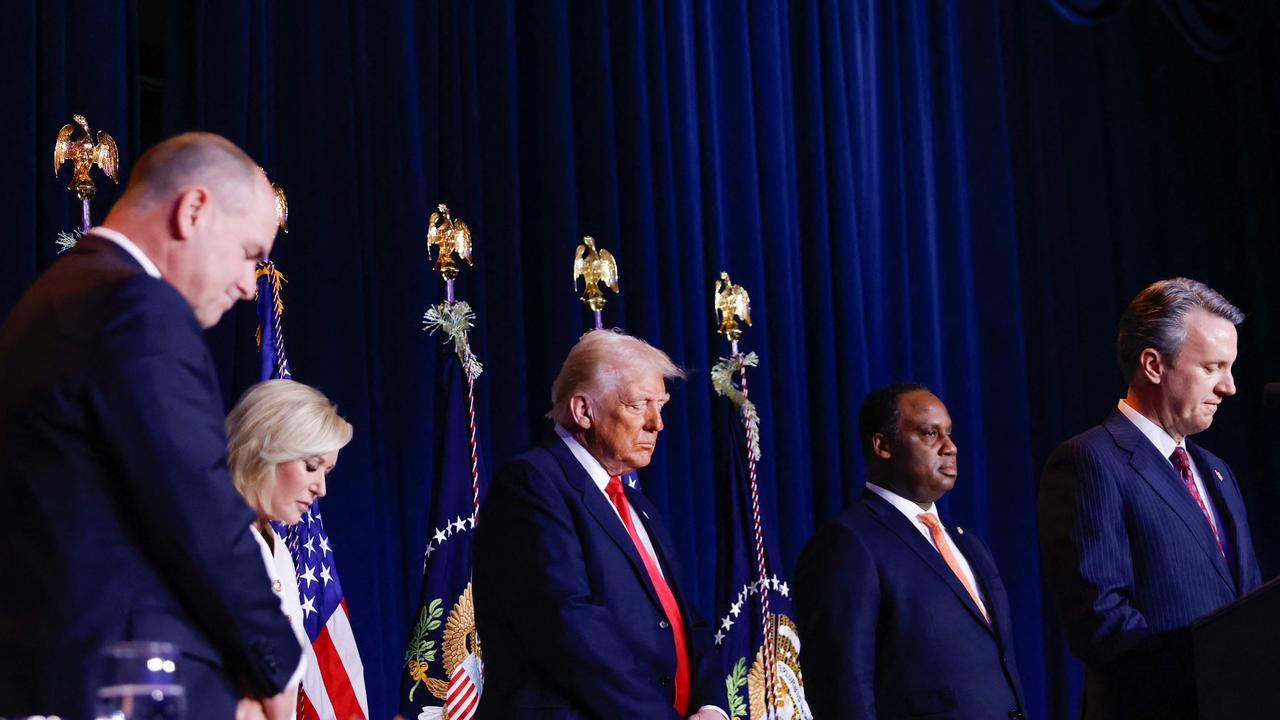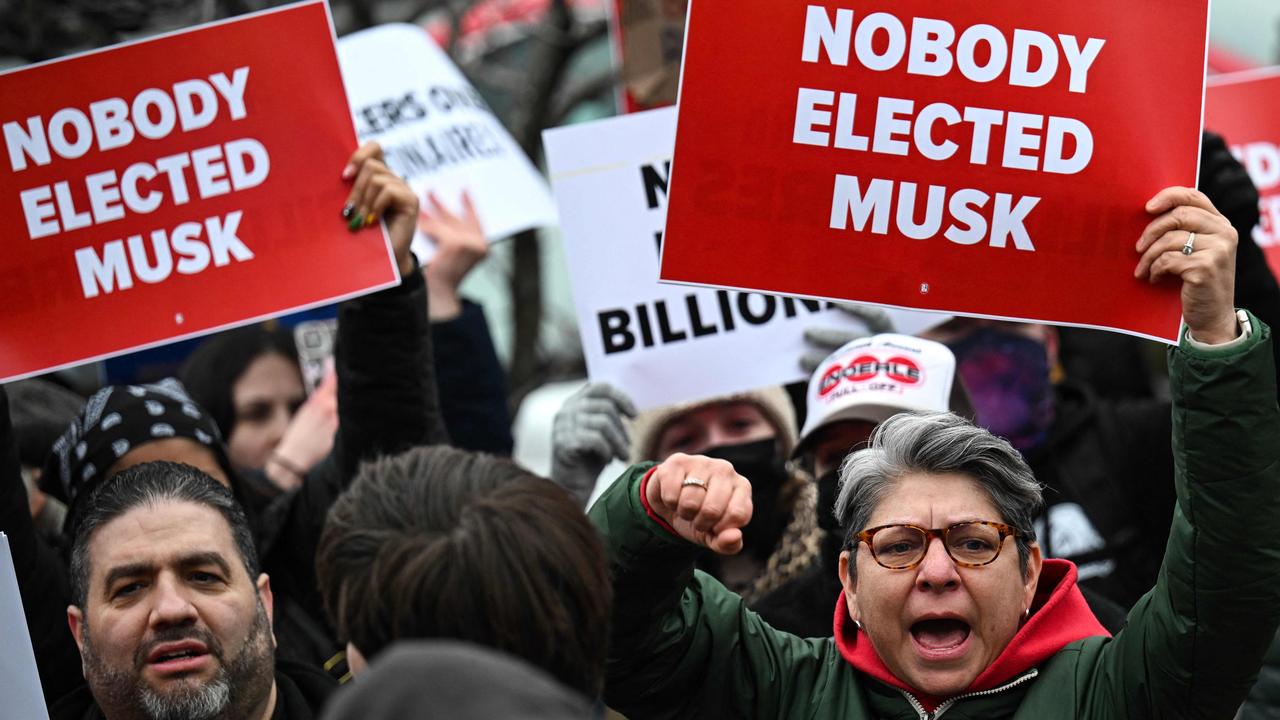EU grain bans are creating a crisis at ports, says Ukraine
Floods from the burst Nova Kakhovka dam risk turning huge areas of Ukrainian farmland into wasteland.

The Kremlin is strangling Ukraine’s economy by blockading its biggest port, the country’s Minister for Agriculture has said, as floods from the burst Kakhovka dam risked turning huge areas of farmland into wasteland.
The destruction of the dam, which has been widely attributed to explosives planted by the Russian troops occupying it, has interrupted the water supply of 31 irrigation systems to fields in the Dnipropetrovsk, Kherson and Zaporizhzhia regions, affecting 584,000ha of land that produces crops worth an estimated $US1.5bn ($2.25bn) a year.
The risk of these lands drying out has compounded problems caused by a Kremlin blockade of Odesa’s main port despite the UN-brokered Black Sea grain deal designed to keep it open, Mykola Solskyi said.
The deal provides for shipments from Russia and Ukraine to reach the Middle East and Africa and avert a global hunger crisis. Negotiations to reopen the port have stalled.
Mr Solskyi said the Kremlin stopped honouring the Black Sea grain deal when Poland and Hungary surprisingly introduced a ban on the import of Ukrainian grain on April 15.
Poland has been a stalwart supporter of Ukraine, yet blocked its agricultural imports alongside Hungary after protests from local farmers who claimed surplus Ukrainian grain was undercutting their prices. The ban is due to expire on June 30, but both countries have plans to renew it.
“After the first ban, everything stopped working the next day,” Mr Solskyi said. “The Russians are watching this and making it even more difficult.”
Huge amounts of grain and seeds are also stuck at Ukraine’s ports, with farmers desperate to sell them.
Since mid-April Slovakia, Bulgaria and Romania have joined the Polish and Hungarian ban. Intervention by the EU has secured the transit of Ukrainian produce through those countries, but not access to the markets themselves.
The Kremlin has further restricted the number of ships able to enter the Black Sea bound for Ukraine since the Polish and Hungarian ban and has threatened to terminate the deal unless Kyiv accommodates a series of demands over which it has no control, such as the lifting of certain Western sanctions, Mr Solskyi said. There are no sanctions on Russian food and fertiliser, but Moscow maintains its exports have been affected by restrictions on payments and shipping.
“If everything remains as it is, and apparently it will, then it will be necessary to proceed from the fact that it (the deal) is no longer functioning,” Sergey Lavrov, Russia’s Foreign Minister, said.
Russian missile strikes, power outages and damaged infrastructure have paralysed Ukraine’s manufacturing and metallurgy industry, to the extent that its economy now relies on agriculture, which accounts for about 70 per cent of its exports, up from 40 per cent. From July to September the country will enter what should be its peak season for agriculture exports. Resuming grain shipments is therefore vital, Mr Solskyi said.
“Our message for Europe is simple: the ban must not be continued … they have to understand that any ban is 10 times harder for us because it provokes our enemies to cause more problems.”
Ukrainian farmers are puzzled by Poland’s ban, which is driving them into debt or the black market, said Alex Lissitsa, chief executive of IMC, one of Ukraine’s largest agriculture companies.
“On the one hand you support us with weapons and money, on the other you close the border. We can understand Hungary as they have been with Russia against Ukraine since the start, but it’s completely unclear what is going on with Poland.”
Mr Lissita said his company had had to take out a five-year loan from the European Bank for Reconstruction and Development. “We need to survive somehow. A lot of other farmers have moved to the shadow economy, we can see a lot of farms working illegally.” Others would simply not be able to plant their next crop, he said, estimating about 20 per cent of Ukraine’s farmers had already stopped planting.
THE TIMES


